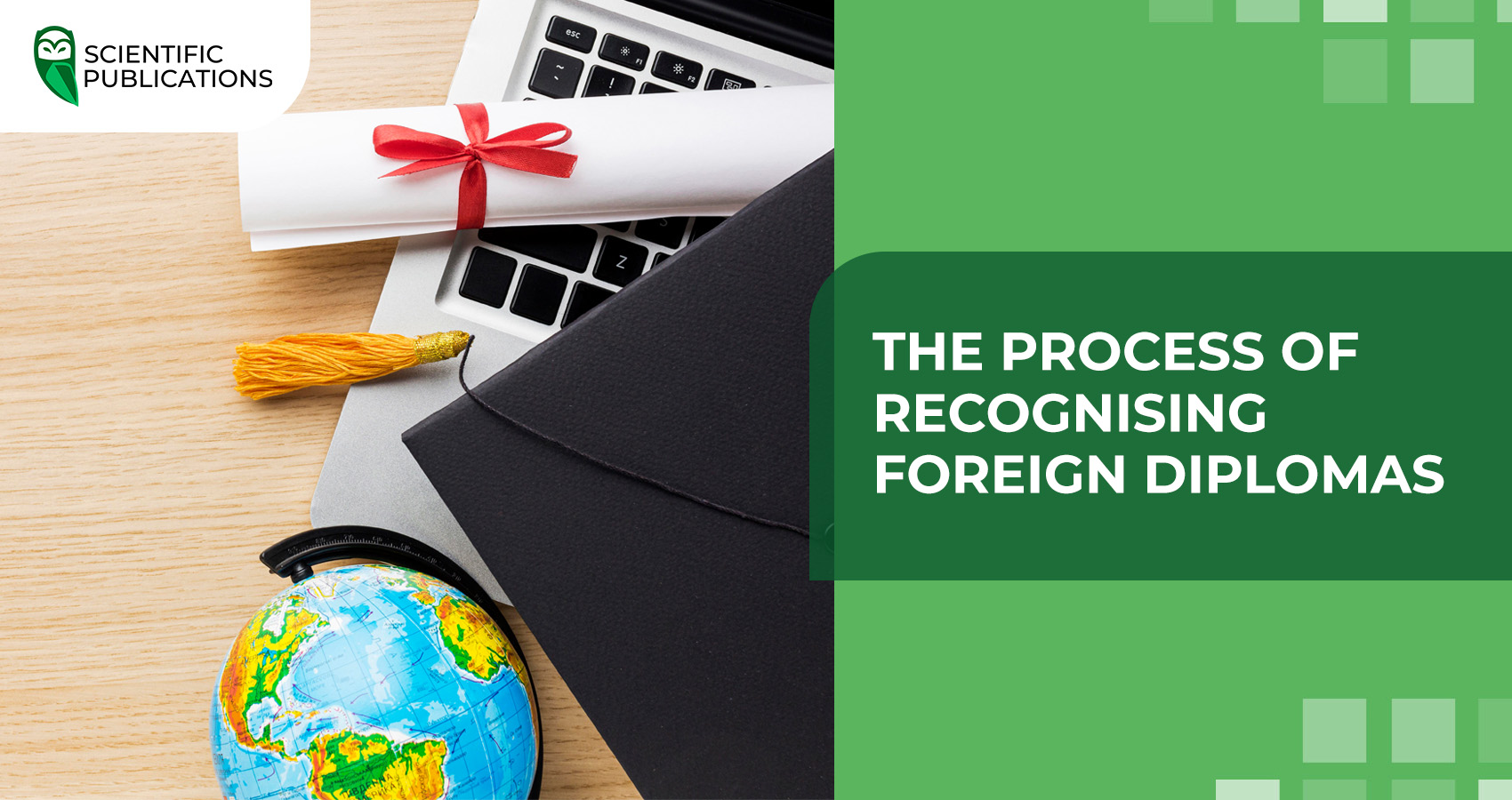Studying abroad and moving to another country to continue your business are common practices in the modern world. That is why the process of recognizing foreign diplomas is becoming increasingly important. Many graduates face difficulties when they return home and need to confirm their education. In order to successfully complete the procedure for the recognition of a foreign diploma, it is important to know what documents need to be prepared, which organisations to contact, and what the procedure entails. Today we will review the key stages and requirements for this process in the Kyrgyz Republic.

What is diploma recognition?
Recognition of a foreign diploma (or nostrification) – is an official procedure aimed at recognising foreign diplomas of higher education in the territory of another country. In the Kyrgyz Republic, it is carried out by the High Attestation Commission (HAC).
Nostrification of foreign diplomas is required by a number of categories of persons, including:
- Employees who wish to work in their speciality in another country.
- Students wishing to continue their master's or postgraduate studies in another country.
- Scientists who plan to engage in research activities.
- Migrants to obtain permanent residence or citizenship (in many countries, nostrification is one of the conditions for legalising their stay in the country).
- Graduates of foreign universities wishing to obtain a licence to carry out certain activities.
It is worth noting that the requirements for the recognition of foreign diplomas vary depending on the academic degree.
Recognition of a PhD
Upon completion of postgraduate studies abroad, graduates receive a PhD degree. However, in the Kyrgyz Republic, the equivalent degree is Candidate of Sciences. The process of nostrification of this type of diploma is described in detail in the Resolution of the Kyrgyz Republic No. 12.
1. Application to the High Attestation Commission
Firstly, the applicant, or the head of the organisation where he or she works, must send a petition to the head of the HAC. In this application, it is necessary to indicate the field of science in which the degree was obtained and attach a number of supporting documents.
What documents should be prepared?
- the applicant's dissertation and its translation into the state or official languages;
- personal record sheet (questionnaire) with a photo;
- copies of PhD or postgraduate professional education diplomas, their translations into the state or official languages, which must be notarised;
- list of scientific works of the author;
- a copy of the passport.
2. Expert Council of the HAC
At this stage, the High Attestation Commission gathers an expert council that provides an opinion on the compliance or non-compliance of the dissertation with the approved requirements.
Requirements for a PhD thesis:
- it must be an individual scientific and qualification work presented in the form of a specially prepared manuscript;
- the innovative solutions proposed by the author must be clearly argued and critically evaluated;
- a dissertation of applied significance must contain information on the practical use of the scientific results obtained by the author, confirmed by documents on the introduction of new quantitative and qualitative indicators, the advantage of the proposed technologies, product samples, materials;
- a thesis of theoretical significance should contain recommendations for the use of scientific findings and results;
- scientific publications should reflect the main results of the dissertation.
3. Decision-making
The final stage is the decision of the expert council. If the dissertation under consideration meets all the above requirements, the Presidium of the High Attestation Commission makes a positive decision on nostrification and issues a PhD diploma equivalent to a foreign one to the applicant.
In the event of a negative decision, the certification department of the HAC of the Kyrgyz Republic sends the applicant a copy of the conclusion of the expert council with a list of reasons for rejecting the application.
Recognition of a habilitated doctorate
As in the case of the PhD degree, the Habilitation Diploma examination is also carried out by the HAC. It makes a decision on the issuance of an equivalent diploma in the Kyrgyz Republic - Doctor of Sciences. According to Government Decree No. 671 of the Kyrgyz Republic, the process of recognising foreign diplomas involves three key stages.
1. Application to the HAC
The applicant or the head of the organisation in which he or she works must send an application to the Head of the High Attestation Commission. However, compared to the nostrification of a PhD degree, the list of supporting documents is wider.
What documents do you need to prepare?
- a copy of your passport;
- a personal personnel record sheet with a photograph certified by the place of work (submitted if the applicant has a job);
- notarised copies of educational documents;
- diploma, indicating the assignment of the degree of "specialist" or "master";
- diploma of the degree of Candidate of Sciences or Doctor of Philosophy;
- diploma of a habilitated doctor;
- apostilled or legalised copies of diplomas of higher and postgraduate education of a candidate of science or doctor of philosophy and a habilitated doctor with translations into the state or official language, with notarised signatures of translators;
- list of scientific works of the author;
- dissertation and its translation into the state or official language in paper and electronic form (1 copy);
- the abstract of the PhD thesis or the thesis of the Doctor of Philosophy, with a translation into the state or official language (in paper and electronic form).
2. Expert Council of the HAC
The HAC convenes an expert council that checks the compliance of the applicant's dissertation with all applicable requirements.
Requirements for a doctoral dissertation:
- development of theoretical positions that contain objective, systematic and substantiated knowledge about nature, society and thinking. This knowledge must be qualified as new scientific achievements;
- solution of a scientific problem of important socio-cultural or economic significance;
- presentation of scientifically based technical, socio-economic or technological solutions, the implementation of which makes a significant contribution to the development of the economy and acceleration of scientific and technological progress, depending on the field of science and subject;
- a dissertation of applied significance must contain information on the practical use of the scientific results obtained by the author, confirmed by documents on the introduction of new quantitative and qualitative indicators, the advantage of the proposed technologies, product samples, materials;
- a thesis of theoretical significance should contain recommendations for the use of scientific findings and results;
- scientific publications should reflect the main results of the dissertation.
3. Adjudication
The final stage of the nostrification process is the decision of the authorised body. The expert council checks the submitted documents and the thesis for compliance with the established requirements. If all the criteria are met, a positive decision is made and the applicant is issued a diploma equivalent to a foreign one.
If the requirements are not met, a negative decision is made. The Commission sends a written notification with a detailed explanation of the reasons for the refusal.
It is important to note that the procedures and authorities responsible for nostrification may vary from country to country. Therefore, it is always worth checking the latest information with the relevant government agency. In addition, each country has specific requirements for the preparation of documents and completion of the procedure, which should be taken into account. If you would like to learn more about the requirements for writing a dissertation for a PhD and a doctoral degree, read our article on this topic.
A detailed study of all the requirements and peculiarities of the recognition of foreign diplomas will help to avoid misunderstandings and delays, thereby ensuring a smooth transition to further studies or professional activities in a new country. Subscribe to our social media to keep up to date with interesting and relevant news from the world of science!





